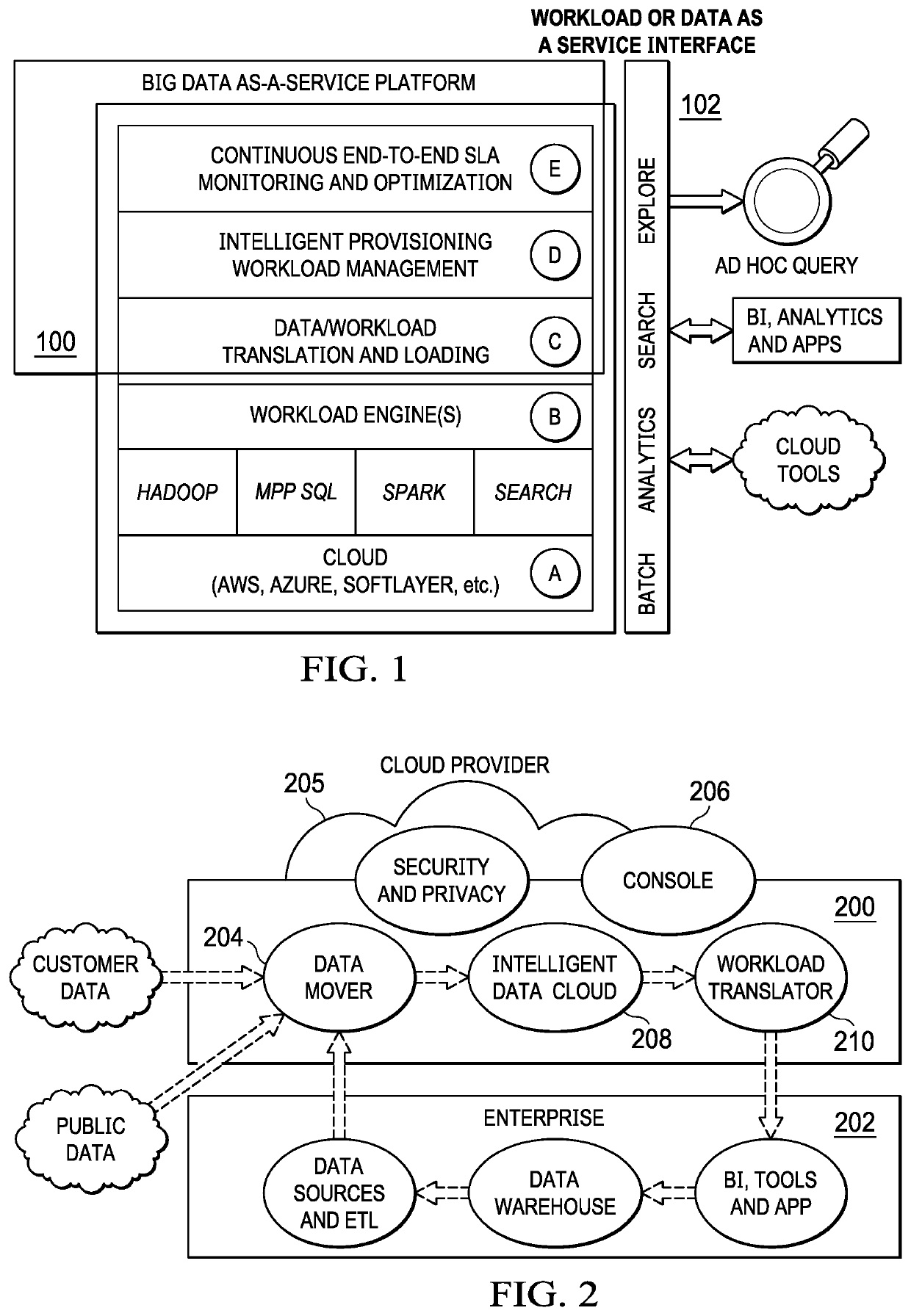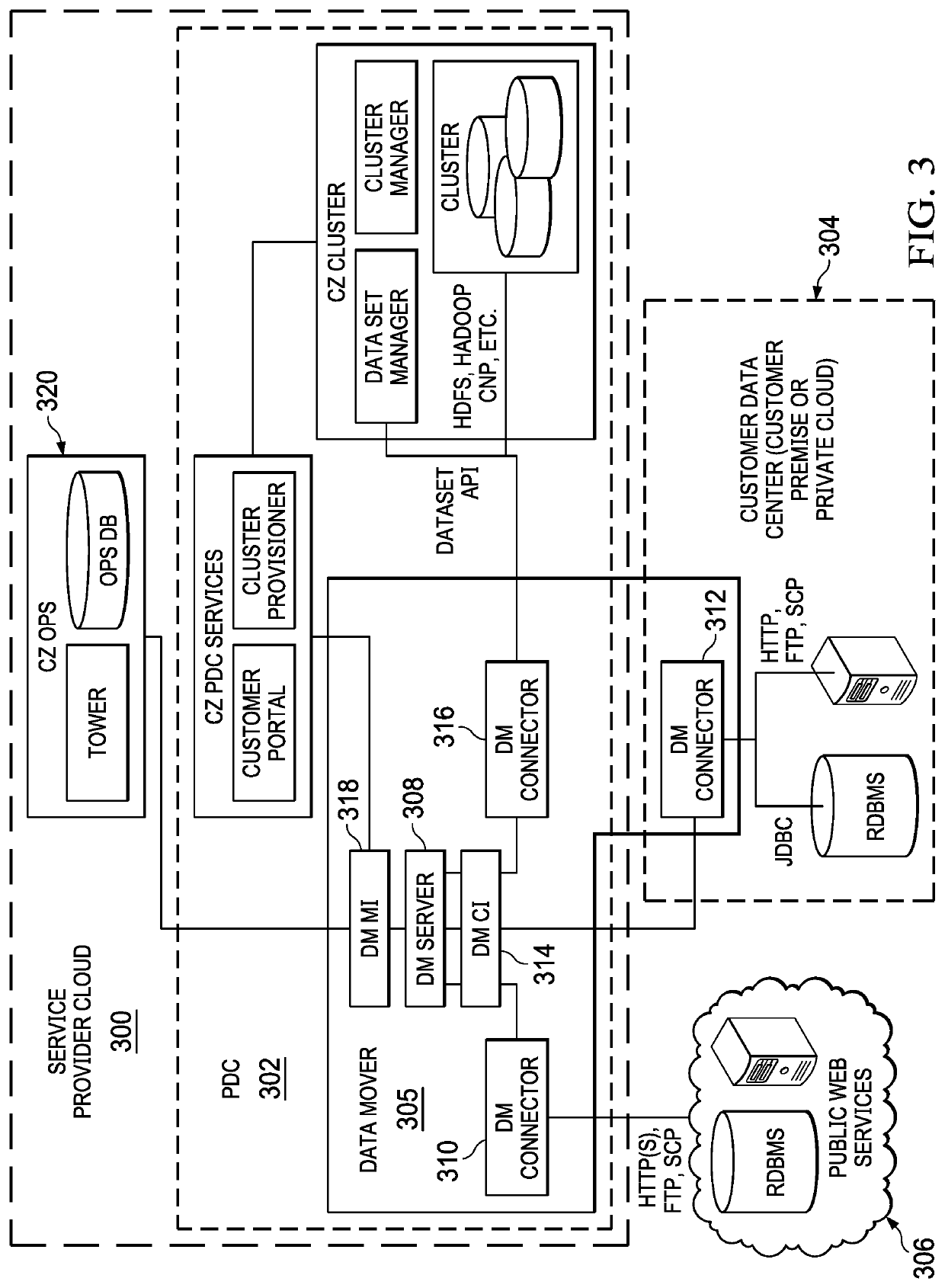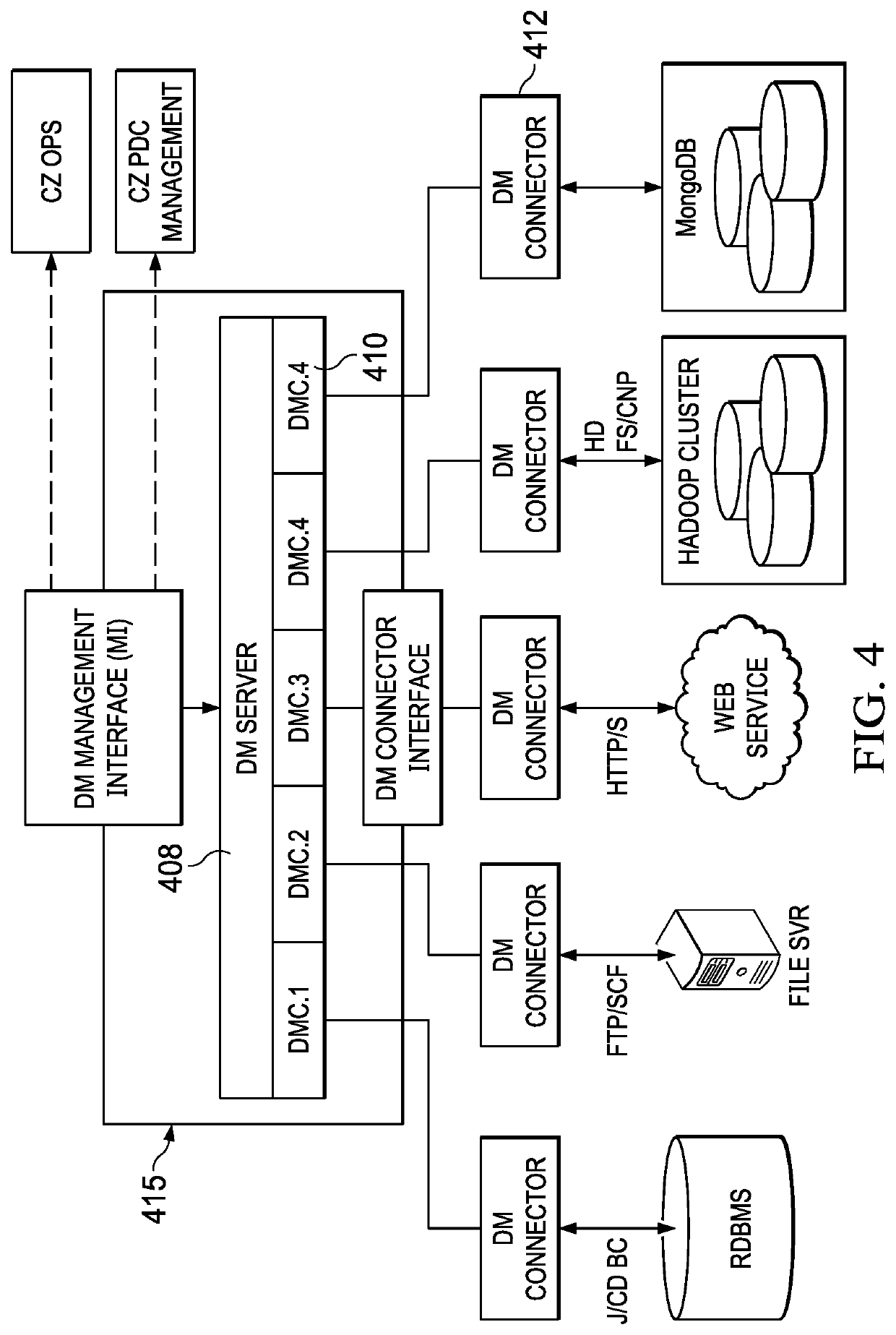Enterprise big data-as-a-service
a technology of enterprise big data and data as a service, applied in the field of data analytics, can solve the problems of requiring further significant investments and time delay, slowing down the agility of enterprises, and cloud environments, which are typically too complex for larger enterprises to understand, interact, provision, and manage. to achieve the effect of easy provisioning of new capacity
- Summary
- Abstract
- Description
- Claims
- Application Information
AI Technical Summary
Benefits of technology
Problems solved by technology
Method used
Image
Examples
Embodiment Construction
[0019]The big data “as-a-service” platform of this disclosure preferably operates in association with, on the one hand, an enterprise analytics data infrastructure, and, on the other hand, a cloud computing infrastructure. A “customer” or “user” of the platform typically is an enterprise that desires to execute an analytics application “workload” against a set of enterprise data. Typically, the enterprise data comprises one or more data sources, and the notion of “enterprise data” is not necessarily limited to data that is actually sourced from the enterprise. The service platform of this disclosure acts as an intermediary between the enterprise analytics data infrastructure (which, typically, is “on-premises”) and the underlying cloud compute resources that are to be provisioned and utilized by the enterprise for executing the workload. Typically, a “workload” as used herein refers to the operations that are performed by the analytics applications with respect to the enterprise dat...
PUM
 Login to View More
Login to View More Abstract
Description
Claims
Application Information
 Login to View More
Login to View More - R&D
- Intellectual Property
- Life Sciences
- Materials
- Tech Scout
- Unparalleled Data Quality
- Higher Quality Content
- 60% Fewer Hallucinations
Browse by: Latest US Patents, China's latest patents, Technical Efficacy Thesaurus, Application Domain, Technology Topic, Popular Technical Reports.
© 2025 PatSnap. All rights reserved.Legal|Privacy policy|Modern Slavery Act Transparency Statement|Sitemap|About US| Contact US: help@patsnap.com



